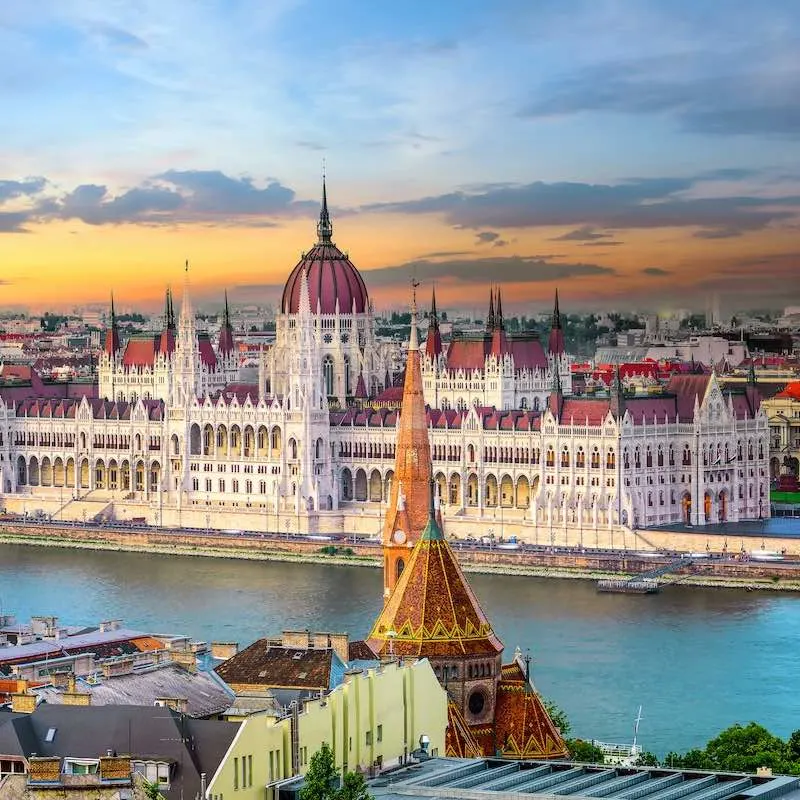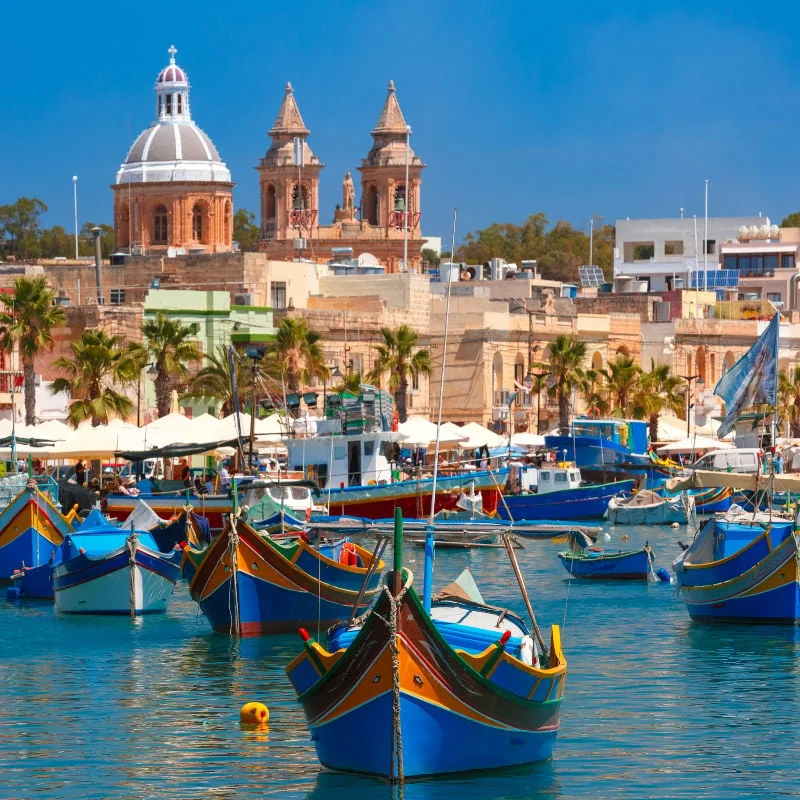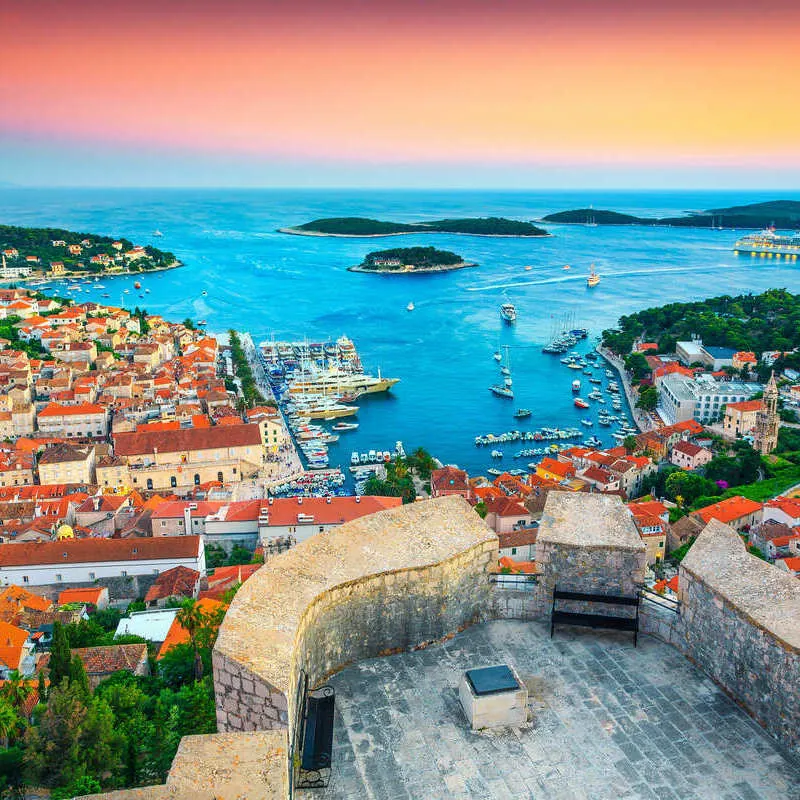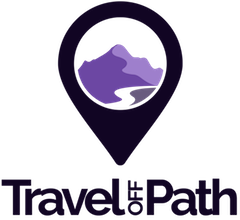Last Updated
Digital nomadism is one of the fastest-growing travel trends in the world. Today, there are an estimated 32 million digital nomads traveling the globe – and it hasn’t gone unnoticed.
Countries are capitalizing on the culture shift and competing to become the next hotspot for these top-earning travelers’ dollars.
58 countries around the world now offer some kind of digital nomad visa. These visas and residence permits allow certain remote workers to stay legally for extended periods of time.
Searches for the term “nomad visa” have increased by a staggering 2,400% over the past five years, according to trend-tracking site Exploding Topics.

To meet skyrocketing demand, long-time European favorites like Portugal, Spain, and Greece have thrown their hats in the ring with their own digital nomad visas.
Sounds too good to be true, right? Well, it just might be.
These coastal European destinations seem like paradise to work from, but their visa processes are notoriously lengthy, expensive, and unpredictable. Many digital nomads have faced serious hurdles, including nearly year-long waits tangled up in red tape, sometimes just to be rejected in the end with little cause.
So what’s left for digital nomads who want to base in Europe without the hassle, wait, or risk?
Here are three of the easiest, cheapest, and fastest European digital nomad visas for remote workers right now:

1. Hungary
Hungary has surged in popularity among digital nomads over the past three years. In fact, the Hungarian capital of Budapest is now in the top five most popular cities in the world for creative digital nomads, according to SoloPress.
It’s easy to see why digital nomads are flocking to Budapest.
Here, rich history meets a modern multicultural society in a walkable, charming city like no other. The lightning-fast Wi-Fi (average 171 mbps fixed, 57 mbps mobile) and abundance of coworking offices and cafes don’t hurt, either. No wonder it has a 92% approval rating on Nomadlist!
Budapest also makes a spectacular base for regional and international travel.
Budget air carriers like Hungarian-owned Wizz Air connect Hungary across Europe and Asia for pennies; plus, the city is a major rail hub. Nomads can take a cinematic Alpine route through Vienna and onward to Paris, or a historic Silk Road adventure through Bucharest to Istanbul.
Budapest is also the third cheapest capital city in the world for digital nomads, according to SoloPress. A comfortable monthly budget here is €1,300.
Top 5 Travel Insurance Plans For 2023 Starting At $10 Per Week

Sold on Budapest yet? Then I have good news. Hungary has the easiest digital nomad visa in Europe right now.
Technically, this process involves a D-type entry visa, then a residency permit – not one specific ‘digital nomad visa.’
After applying in person at the nearest Hungarian embassy and paying a one-time €100 fee, applicants will usually get their entry visa within just 30 days. Once in Hungary, digital nomads then apply online for a type of temporary residency permit called a ‘White Card.’
White Card holders can stay for up to one year with a renewal option. However, most digital nomads choose to stay less than 183 days to meet the requirements for a tax-free stay in Hungary.
To receive a Hungarian digital nomad entry visa, you must:
- Make at least €2,000/month in income
- Be a partner or shareholder in a foreign company
- Prove that your work is totally remote
- Prove that you have accommodation in Hungary
- Prove that you are financially stable and insured

2. Malta
With a laid-back island lifestyle, breathtaking beaches, and easy access to spectacular destinations like Sicily and Tunisia, what’s not to love? Malta is a true remote worker’s paradise.
Digital nomads in particular are drawn to Malta for its year-round sun, high quality of life, and business-friendly tax policies.
English is one of the two official languages in Malta, and the euro is the local currency.
Internet in Malta ranks in the top 35 fastest connections in the world, averaging 98 mbps fixed speeds and 53 mbps mobile speeds. Beyond coworking spaces and fantastic cafes, there are entire digital nomad villages to live and work from in Malta.
The digital nomad community here is one of the most well-established and active in the world, thanks in part to Malta’s new quick and painless Digital Nomad Residence Permit.

What makes Malta’s digital nomad visa so easy? The application is completed fully online in just a few minutes, and has an approval rate of nearly 90%.
First, applicants submit their documents and pay a €300 fee online. Most applicants receive a letter of approval in principle within 30 working days. Then, proof of accommodation and insurance are required to get a letter of final approval. Finally, the residence card can be picked up in 2-3 weeks in person for €27.50.
Digital Nomad Residence Permit holders can stay in Malta for 1 year, with possible renewal for a maximum of 3 years.
To be eligible for Malta’s Nomad Residence Permit, you must:
- Earn at least €32,400/year (or €2,700/month) from your remote work
- Be an employee, freelancer, or business owner of a foreign company with clients outside of Malta
- Prove that you work entirely remotely “using telecom technology”
- Prove that you have accommodation in Malta
- Have health insurance and travel insurance

3. Croatia
From Game of Thrones favorite Dubrovnik to picture-perfect Split, coastal Croatia truly feels torn from a movie screen. But how about the chance to live and work there, hassle-free?
In fact, Nomadlist has named Croatia the ‘most liked’ digital nomad hub in Europe this year!
Now that Croatia has joined the EU’s Schengen Zone, it’s a more attractive option for digital nomads than ever before. Best of all, Croatia’s digital nomad visa approval rate stands at 97%.
This process has two parts. First, a variety of entry visa options; then, a temporary residence permit.
Digital nomads can apply fully online. Alternatively, they can choose to apply in-person either at a Croatian embassy or consulate in their home country or at a local police station once in Croatia.
Passport holders of visa-free countries like the United States, UK, and Australia typically prefer to apply online for a digital nomad temporary stay permit (Boravak digitalnih nomada).

Once your temporary stay is approved, you’ve got to get to Croatia within 30 days (if you’re not there already), find your accommodation, and register your address and biometrics with the police within 3 days of arriving.
The total cost for applying and receiving your residency card is just $168 if applying from your home country’s embassy, or $93 if applying directly with the local Croatian police. With this permit, digital nomads don’t pay any taxes in Croatia.
Croatia’s one-year residence permit is the perfect choice for digital nomads who want to scope out a country before moving and need a short-term base in the EU. (If you want to re-apply, you’ll have to leave Croatia and wait 6 months.)
To quality, digital nomads need:
- Monthly income of €2,540, OR one year of income (€30,472) sitting in your bank account
- Proof of fully remote work for a foreign company or your own company registered outside of Croatia
- Proof of insurance and financial stability
- Clean federal criminal background check

Traveler Alert: Don’t Forget Travel Insurance For Your Next Trip!
↓ Join Our Community ↓
The Travel Off Path Community FB group has all the latest reopening news, conversations, and Q&A’s happening daily!

SUBSCRIBE TO OUR LATEST POSTS
Enter your email address to subscribe to Travel Off Path’s latest breaking travel news, straight to your inbox.
This article originally appeared on TravelOffPath.com
